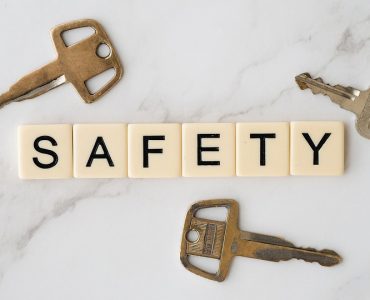The Reflexes to Have in Case of a Fire
Hey there, folks! We’re diving into a topic that’s super important but often gets pushed to the back of our minds—what to do if a fire breaks out. Fires can be scary, but having the right reflexes can make all the difference between a close call and a catastrophe. So, grab a seat, and let’s talk about some crucial fire safety tips that can truly ameliorate your life.
1. Prevention is Key
First things first, let’s talk about preventing fires in the first place. It’s way easier to avoid a fire than to deal with one. Here’s what you can do:
- Install Smoke Alarms: Make sure your home is equipped with smoke alarms on every floor and inside each bedroom. Test them regularly to ensure they’re working.
- Fireproof Your Home: Keep flammable materials away from heat sources, like stoves and heaters. Store chemicals safely and away from open flames.
- Practice Safe Cooking: Cooking fires are a leading cause of home fires. Stay in the kitchen when you’re frying, grilling, or broiling food, and never leave the stove unattended.
- Electrical Safety: Don’t overload outlets, and replace damaged cords or plugs. Unplug appliances when not in use, and be cautious with space heaters.
2. Escape Plan
Having a fire escape plan is like having a superhero cape—you hope you never need it, but it can save the day. Here’s how to create one:
- Draw a Floor Plan: Sketch out your home’s layout, including all exits. Identify two ways out of each room, if possible.
- Choose a Meeting Spot: Pick a designated spot outside, like a tree or a neighbour’s house, where everyone will gather in case of a fire.
- Practice Drills: Regularly conduct fire drills with your family or housemates. Practice getting out of the house quickly and meeting at your chosen spot.
- Call 911: Make sure everyone knows how to call 911 to report the fire once they’re safely outside.
3. Stay Low and Go
In the event of a fire, the smoke can be just as dangerous as the flames. Here’s a crucial tip: stay low and go. Smoke rises, so the air near the floor is often clearer and easier to breathe. Crawl to safety if you need to, especially if you encounter heavy smoke.
4. Stop, Drop, and Roll
If your clothes catch fire, remember this simple mantra: stop, drop, and roll. Stop immediately, drop to the ground, and roll over and over to smother the flames. Covering your face with your hands can protect your face while you roll.
5. Never Use the Elevator
This one’s a no-brainer, but it’s worth repeating. Never, ever use the elevator during a fire. Elevators can malfunction and trap you inside. Always use the stairs—it’s safer and quicker.
6. Feel the Door
Before opening a door in a fire situation:
- Use the back of your hand to touch it. If the door is hot, don’t open it; fire may be on the other side.
- Find another way out.
- If it’s cool, crack it open slowly and be ready to slam it shut if smoke or flames rush in.
7. Cover Vents and Cracks
If you’re stuck in a room during a fire and can’t escape, seal any cracks or vents around doors with cloth or tape to keep smoke out. Signal for help from a window by waving a bright-coloured cloth or using a flashlight.
8. Stay Calm and Breathe Slowly
In a fire, panic can be your worst enemy. Stay as calm as possible, and breathe slowly to conserve oxygen. If you’re trapped, try to signal for help with a whistle, phone flashlight, or by shouting.
9. Practice Fire Extinguisher Safety
If you have a fire extinguisher at home, it’s important to know how to use it. Remember the acronym PASS: Pull the pin, Aim at the base of the fire, Squeeze the handle, and Sweep from side to side.
10. Get Out and Stay Out

Once you’ve safely evacuated a burning building, never go back inside for any reason. Let the professionals handle it. Firefighters are trained to handle these situations.
And that’s that, having the right reflexes in case of a fire can truly make a life-saving difference. From prevention to escape planning and staying calm under pressure, these tips are essential to ensure the safety of you and your loved ones. Remember, it’s better to be prepared and never need it than to need it and not be prepared. Stay safe out there!


